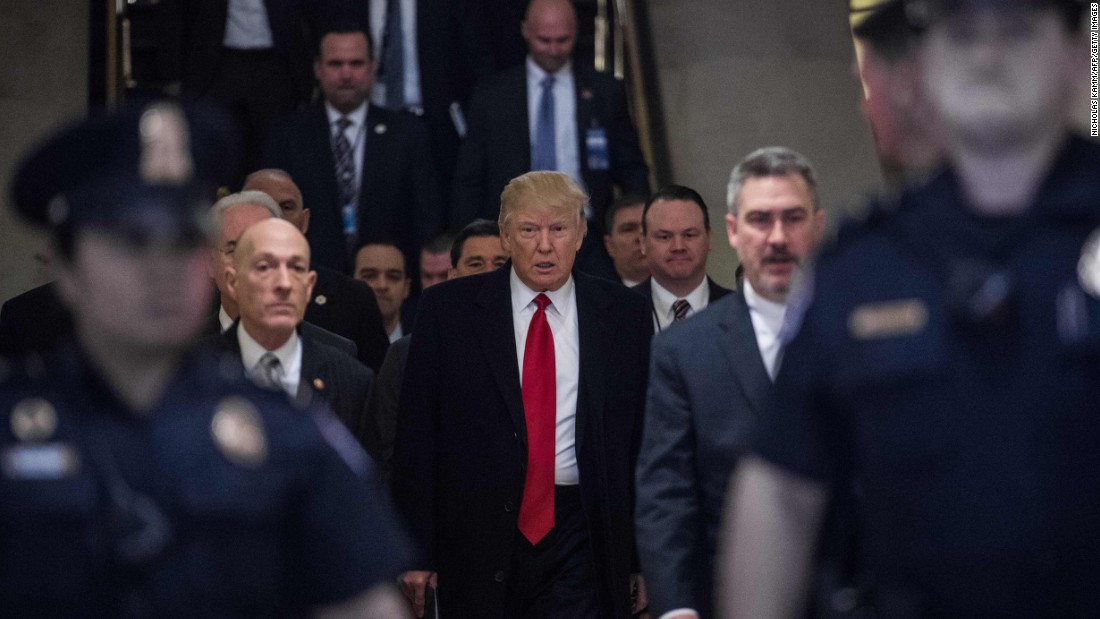As the U.S. political scene continues to evolve, the phrase "Schumer's Plan: Trump Lame Duck?" has emerged as a central topic in discussions about the future of American politics. Let's break it down: Senate Majority Leader Chuck Schumer is at the helm of a strategic plan that could significantly impact the final days of Donald Trump's presidency. To truly understand what’s going on, we need to dive deep into the political maneuvers, legislative actions, and the potential ripple effects of Schumer's approach.
Now, let’s talk about the term "lame duck." This phrase refers to an elected official whose successor is already chosen, and they're just hanging on until their term ends. In this context, the big question becomes: Is Donald Trump, as a "lame duck" president, dealing with challenges that Schumer's strategic plan has set in motion? In this article, we'll explore Schumer's moves and how they might shape the political future of the United States.
Through this piece, we’ll examine the historical backdrop, legislative tactics, and political ramifications of Schumer's plan. By the time you finish reading, you'll have a clearer picture of the forces at play and how these developments might influence the nation's political path going forward.
Read also:Is Simon Cowell Dead Debunking The Rumors And Getting The Facts
Table of Contents
- Background on Schumer's Plan
- What Does It Mean for Trump to Be a Lame Duck?
- Biography of Chuck Schumer
- Schumer's Political Strategies
- Legislative Actions Under Schumer's Leadership
- Impact on Trump's Presidency
- Public Opinion and Reactions
- Historical Context of Lame Duck Presidents
- Future Implications for American Politics
- Conclusion: What Lies Ahead?
Background on Schumer's Plan
Chuck Schumer, the Senate Majority Leader, has been leading the charge in crafting legislative strategies aimed at tackling some of the nation's most pressing problems. His plan, often referred to as "Schumer's Plan," includes a wide range of initiatives designed to counteract the policies of the Trump administration. This encompasses efforts to address economic struggles, healthcare reform, and social justice issues.
Keyword Variation: Senate Majority Leader's Strategy
Schumer's approach involves using his position to push for legislative changes that reflect the Democratic Party's priorities. By focusing on key issues such as climate change, healthcare, and infrastructure, Schumer aims to leave a lasting mark on the country's political environment. His plan isn't just about opposing Trump—it's about steering the nation toward a new direction.
Key Elements of Schumer's Plan
- Focusing on economic recovery and job creation
- Prioritizing healthcare reform
- Investing in infrastructure and renewable energy
- Advocating for social justice and equality
What Does It Mean for Trump to Be a Lame Duck?
The term "lame duck" has been tossed around a lot when describing presidents nearing the end of their terms, particularly when their successor is already elected. In the case of Donald Trump, whether he qualifies as a lame duck has sparked heated debates. While he's still in office, his ability to sway policy and legislative outcomes is considerably weaker than before.
Keyword Variation: Lame Duck Presidency
Historically, lame duck presidents encounter challenges in pushing through major legislative initiatives, as their political influence starts to fade. For Trump, this period offers a chance to focus on executive actions and appointments that could shape the legacy of his presidency. However, opposition from Schumer and other Democratic leaders adds another layer of difficulty.
Read also:Mastering Remote Iot Device Ssh On Android The Ultimate Guide
Challenges Faced by Lame Duck Presidents
- Struggling to pass significant legislation
- Facing increased scrutiny from the media and opponents
- Concentrating on executive orders and last-minute appointments
Biography of Chuck Schumer
Charles Ellis "Chuck" Schumer is a towering figure in American politics, having served as the Senate Majority Leader since 2021. Born on November 23, 1950, in Brooklyn, New York, Schumer has devoted his career to public service. His political journey began with his election to the U.S. House of Representatives in 1980, where he served until 1998.
In 1998, Schumer was elected to the U.S. Senate, quickly establishing himself as a major player in the Democratic Party. Known for his sharp wit and political savvy, Schumer has played a crucial role in shaping legislative agendas and championing progressive policies.
Data and Biodata of Chuck Schumer
| Full Name | Charles Ellis Schumer |
|---|---|
| Date of Birth | November 23, 1950 |
| Place of Birth | Brooklyn, New York |
| Political Party | Democratic |
| Current Position | Senate Majority Leader |
Schumer's Political Strategies
Schumer's political strategies are a blend of practicality and idealism. He employs a variety of methods to achieve his legislative goals, including building coalitions, negotiating with bipartisan colleagues, and leveraging his position as Senate Majority Leader. His approach often focuses on issues that resonate with the public and align with the Democratic Party's platform.
Keyword Variation: Legislative Priorities
A major part of Schumer's strategy is concentrating on high-impact issues that can garner broad support. By addressing concerns such as healthcare, climate change, and economic inequality, he aims to leave a lasting legacy. Schumer's knack for navigating complex political landscapes has earned him a reputation as a skilled negotiator.
Examples of Schumer's Strategies
- Prioritizing healthcare reform in legislative agendas
- Promoting infrastructure investments to spur economic growth
- Advocating for social justice and equality through legislative measures
Legislative Actions Under Schumer's Leadership
Under Schumer's leadership, the Senate has taken meaningful steps to address critical issues facing the nation. Legislative actions have included measures to expand healthcare access, invest in infrastructure, and combat climate change. These efforts reflect Schumer's commitment to creating a more equitable and sustainable future for all Americans.
Keyword Variation: Legislative Initiatives
One significant accomplishment under Schumer's leadership is the passage of the Infrastructure Investment and Jobs Act, which aims to modernize the nation's infrastructure and boost economic growth. Additionally, Schumer has been a vocal supporter of expanding access to affordable healthcare, pushing for reforms that benefit millions of Americans.
Key Legislative Achievements
- Passage of the Infrastructure Investment and Jobs Act
- Advancements in healthcare reform legislation
- Initiatives to combat climate change and promote renewable energy
Impact on Trump's Presidency
The influence of Schumer's plan on Trump's presidency is undeniable. As a lame duck president, Trump faces substantial hurdles in advancing his agenda, especially with Schumer's opposition. The legislative priorities set by Schumer have effectively limited Trump's ability to implement major policy changes during his final days in office.
Keyword Variation: Lame Duck Challenges
Despite these obstacles, Trump has continued to exercise executive power, issuing executive orders and making last-minute appointments. However, the influence of Schumer and other Democratic leaders has curtailed the scope of these actions, ensuring a smoother transition of power.
Challenges for Trump's Final Days
- Limited ability to pass major legislation
- Focus on executive orders and judicial appointments
- Increased scrutiny from the media and opposition
Public Opinion and Reactions
Public opinion on Schumer's plan and Trump's status as a lame duck president is divided. Supporters of Schumer's strategies applaud his efforts to tackle critical issues and ensure a smooth transfer of power. Conversely, Trump's backers argue that his executive actions are essential for protecting his legacy and advancing his vision for the country.
Keyword Variation: Public Sentiment
Surveys and polls during this time show that public sentiment is heavily influenced by political affiliations and perceptions of the two leaders. While Schumer's focus on legislative priorities resonates with many Americans, Trump's executive actions continue to spark discussion and debate.
Factors Influencing Public Opinion
- Political affiliations and party loyalty
- Perceptions of leadership and effectiveness
- Media coverage and public discourse
Historical Context of Lame Duck Presidents
The idea of a lame duck president has roots that go back to the early days of the United States. Throughout history, lame duck presidents have had varying degrees of success in advancing their agendas during their final days in office. Their ability to influence policy and legislative outcomes often depends on the political climate and the strength of opposition.
Keyword Variation: Historical Precedents
Examples of lame duck presidents include Herbert Hoover, whose presidency ended during the Great Depression, and George H. W. Bush, who faced challenges in passing major legislation during his final months in office. These historical examples offer valuable insights into the dynamics of power and influence during transitional periods.
Lessons from History
- Importance of bipartisan cooperation during transitions
- Impact of public opinion on lame duck presidents
- Role of legislative leadership in shaping outcomes
Future Implications for American Politics
The effects of Schumer's plan and Trump's lame duck presidency extend beyond the current political landscape. These developments lay the groundwork for future elections and legislative priorities, influencing the direction of American politics for years to come. As the nation tackles pressing issues like healthcare, climate change, and economic inequality, the strategies employed by leaders like Schumer will play a critical role in shaping the future.
Keyword Variation: Political Trajectory
Moving forward, the focus on key issues such as infrastructure, healthcare, and social justice will continue to dominate political conversations. The ability of leaders like Schumer to navigate these challenges and build consensus will determine the success of future legislative efforts.
Potential Future Developments
- Continued emphasis on healthcare and infrastructure reform
- Advancements in climate change initiatives
- Increased focus on social justice and equality
Conclusion: What Lies Ahead?
To wrap it up, the question of "Schumer's Plan: Trump Lame Duck?" shines a light on the intricate dynamics of American politics during transitional periods. Through his strategic leadership, Schumer has effectively countered the policies of the Trump administration, setting the stage for the future political landscape. As the nation progresses, the lessons learned from this period will guide leaders in addressing the challenges ahead.
We encourage you to join the conversation by leaving your thoughts and questions in the comments section below. Share this article with others who might find it informative, and check out related content on our website for deeper insights into American politics.


